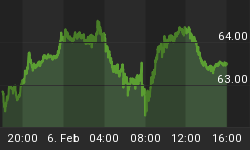Two words that any oil company dreads to hear are "export duty." Especially if the word "increases" or "introduced" is floating around there too.
So when Kazakhstan introduced an oil export duty to meet shortfalls in the national budget, the mood wasn't exactly jovial.
On July 13, the Kazakh government brought back the tax that had been abolished during the financial crisis. A US$20 tariff will be levied on every ton of crude oil exported from the Central Asian nation. The hope: collect some US$406 million in additional revenue by the end of the year.
The energy-rich, former Soviet republic has some of the largest oil and gas reserves in the Caspian Sea basin, producing 1.43 million barrels per day (bbl/day) in 2008. And as the giant Tengiz and Karachaganak fields are developed further, an additional 1.5 million bbl/day will be coming off the production line.
With the country holding 3% of the world's proven oil reserves and the majority of its Caspian Sea holdings still unexploited, it's no wonder oil companies - both major and minor - are flocking to it like moths to a flame.
Of course, this new tax has everyone from Chevron and ENI, whose long-standing agreements have been unilaterally revised in effect, to the small-scale producers in an uproar. The move has been dubbed as the latest example of resource nationalism in Kazakhstan, analysts say, and the feeling is that the country seems to be taking its cue from Mother Russia.
There's worry, too, that this is only the beginning of the end. There's no guarantee to say that the tax will not rise as more and more oil begins to flow out of the country. And the thriving uranium industry might be next to get heavy taxes slapped onto it.
Bringing it back to an American context, the question of energy security rears its head yet again. Oil from Kazakhstan flows through two pipelines: one winds through Russia, the other through China. Not exactly the two countries you'd want controlling the taps of your oil supply.
Today's realities - be they economic or security-related - mean that the natural shopping ground for U.S. oil are the Canadian oil sands in Alberta. According to the EIA (U.S Energy Information Administration), Canada remained the largest exporter of oil in April, exporting 2.486 million barrels per day to the U.S. The majority of these barrels come from the Canadian oil sands.
While protestors may get up their flags and launch advertising campaigns, technological breakthroughs mean the environmental impact from oil sands is far less than before. Canadian laws also protect the environment, ensuring that all disturbed land is returned to a productive state. Carbon revenue, too, is reinvested into clean energy research, paving the way to the future.
As we wait on alternative energy sources to take center stage in world energy plays, the truth remains that oil and gas must power our lives. And for the United States, Canadian oil sands mean a secure and most of all, reliable, source of energy.
With Canada looking ready to pick up the slack from the Gulf, it's worth knowing which companies operating in the Great White North are worth adding to your portfolio. These are the ones that combine the latest technology with good site locations and excellent cash flow. Their inclusion will benefit any portfolio and rake in some promising returns.
Whether it's Canadian oil sands, uranium, or viable green energies, Marin Katusa and his team make it their mission to find the best of the best junior energy companies for maximum profit potential. Read more about Marin and the new European "Cold War" that promises investors enormous opportunity.















